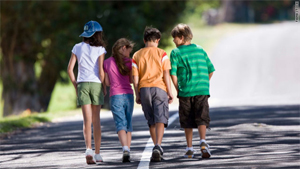| It's already known that children with older siblings who have autism spectrum disorder or ASD, have a higher risk of developing the condition themselves, and a new study in Pediatrics finds that risk is even higher than previously expected.  "We expected the rates to be significant, but not as high as we found," said Dr. Sally Ozonoff, lead author and vice chair for Research at the Department of Psychiatry and Behavioral Sciences at the UC Davis M.I.N.D. Institute. “We pretty much know genetics is a factor somewhere in the autism puzzle, but there may be other factors that work with the genetic makeup to cause the condition. We just don't know. "We expected the rates to be significant, but not as high as we found," said Dr. Sally Ozonoff, lead author and vice chair for Research at the Department of Psychiatry and Behavioral Sciences at the UC Davis M.I.N.D. Institute. “We pretty much know genetics is a factor somewhere in the autism puzzle, but there may be other factors that work with the genetic makeup to cause the condition. We just don't know.
"The message we'd like to see come from the study is primary care physicians need to look at infants more closely when they are born to a family with children with ASD." In the study, the largest of its kind, according to Ozonoff, researchers monitored 664 infants, registered with the Baby Siblings Research Consortium who either had an older biological brother or sister with ASD. They followed the little ones from infancy to 36 months. Previous studies estimated that the ASD recurrence risk in younger siblings was between 3% and 10%. But this study found that the overall risk was much higher, at 18.7% and even higher in families with more than one affected sibling – about 32.2%. "This does not mean that every family who has a child with ASD will have a second child with ASD. It's just their risks are higher," noted Ozonoff. "And keep in mind we found that 80 percent of children with older siblings who had ASD never developed any signs of autism. It's just an indicator that parents and physicians need to be aware of." Male babies experienced nearly three times the risk over female infants, 26% versus 9%. Age of parent, gender of the older sibling or birth orders were not predictors of the condition, meaning if the first child in the family does not have ASD, and the second child does, the risk percentages are still the same for the next child.  "I think you'll find that parents with children who have ASD will not be shocked by these finding," said Dr. Alycia Halladay, director of research for environmental sciences for Autism Speaks, an advocacy organization that heads up the Baby Siblings Research Consortium. "But the data does support the importance of monitoring infants from birth who have older brothers or sisters with ASD. Because recognizing autism at an early age is key to getting a child successful treatment" "I think you'll find that parents with children who have ASD will not be shocked by these finding," said Dr. Alycia Halladay, director of research for environmental sciences for Autism Speaks, an advocacy organization that heads up the Baby Siblings Research Consortium. "But the data does support the importance of monitoring infants from birth who have older brothers or sisters with ASD. Because recognizing autism at an early age is key to getting a child successful treatment"
Authors of the study suggest their findings could also impact future genetic screening and family planning decisions when it comes to parents of children with ASD. The knowledge of the risk could also lead to earlier observation and intervention for babies born into these particular families. "This study just backs up what other data has been saying, even more so, " said Ozonoff. "But we'd like primary care professionals to be more aware of the risks for newborns with ASD siblings, so they can ask the pertinent questions to parents about the new sibling, such as 'Is he or she looking at you, learning to point, smiling?' All of these are important aspects of deciding whether a young child may have ASD." | 


